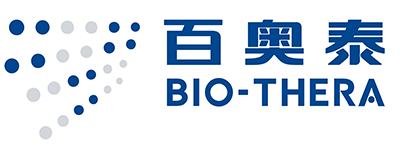- Bone Health
- Immunology
- Hematology
- Respiratory
- Dermatology
- Diabetes
- Gastroenterology
- Neurology
- Oncology
- Ophthalmology
- Rare Disease
- Rheumatology
Bio-Thera Moves Ustekinumab Candidate Into Phase 3 Trial
Bio-Thera's BAT2206 ustekinumab candidate is in contention with multiple other proposed biosimilars to Janssen's Stelara.
Ustekinumab (Stelara) is a blockbuster drug for the treatment of Crohn disease, ulcerative colitis, and psoriatic arthritis that brought in $5.24 billion in revenues for Janssen Pharmaceuticals in 2020, up from $4.35 billion in 2019. There are many contenders in the global race to produce the first biosimilar for this product, and progress reports are now routine.
This week, Bio-Thera Solutions of Guangzhou, China, said it has dosed the first patient in a phase 3 clinical trial of a biosimilar candidate for ustekinumab (BAT2206). Phase 3 trials, if successful, typically precede a regulatory filing for marketing approval.
Bio-Thera is a commercial-stage pharmaceutical company—it has 1 product in circulation, an adalimumab biosimilar (Qletli), which became available on the Chinese market in January 2020. Besides BAT2206, Bio-Thera has several biosimilar candidates in clinical stages of development, including BAT1806, a tocilizumab biosimilar candidate, and BAT2506, a golimumab biosimilar candidate.
Tocilizumab (Actemra) is used in the treatment of rheumatoid arthritis, polyarticular juvenile idiopathic arthritis, systemic juvenile idiopathic arthritis, systemic sclerosis–associated interstitial lung disease, and giant cell arthritis. Bio-Thera said its tocilizumab candidate has successfully completed a global phase 3 clinical trial.
Golimumab (Simponi) is used in the treatment of rheumatoid arthritis, psoriatic arthritis, ankylosing spondylitis, and ulcerative colitis. BAT1806 and BAT2506 have each entered the phase 3 trial stage, according to Bio-Thera.
Bio-Thera’s ustekinumab candidate is undergoing evaluation in a multicenter, randomized, double-blind, controlled study (N = 472) comparing the efficacy and safety of BAT2206 with the reference product in patients with moderate-to-severe psoriatic arthritis.
Ustekinumab works by suppressing the action of cytokines interleukin (IL)-12 and IL-23, which facilitate immune cell signaling and in disorders that involve an overstimulated immune system response. “IL-12 and IL-23 have been implicated as important contributors to the chronic inflammation that is a hallmark of Crohn disease and ulcerative colitis, among many other autoimmune diseases,” Bio-Thera said in its statement.
Also, the company has a bevacizumab biosimilar candidate that has completed phase 3 clinical trial development. In April, Bio-Thera reported it has entered a commercialization agreement with Biogen for the distribution of the tocilizumab biosimilar candidate in countries outside the China region.
Other companies in the ustekinumab biosimilar development race include NeuClone of Sydney, Australia (NeuLara), Samsung Bioepis (SB17), Formycon and Bioeq (FYB202), Amgen (ABP 654), Meiji Seika (DMB-3115), and Celltrion (CT-P43).
Newsletter
Where clinical, regulatory, and economic perspectives converge—sign up for Center for Biosimilars® emails to get expert insights on emerging treatment paradigms, biosimilar policy, and real-world outcomes that shape patient care.

